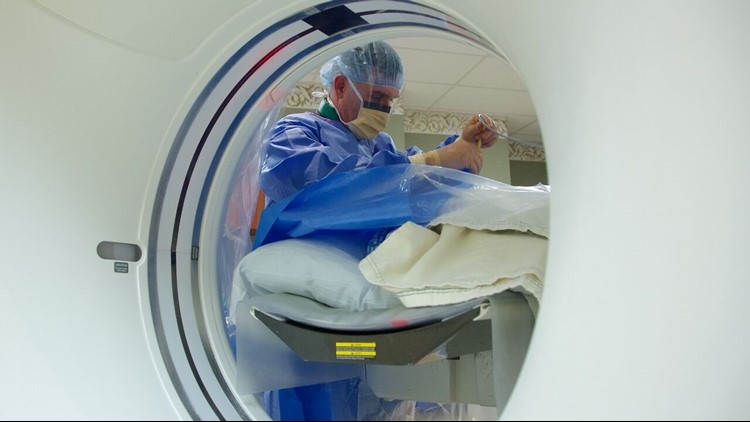Jenni Cawood is down about 15 pounds and still losing weight after taking part in a clinical trial to freeze her hunger nerve.
"You don't sense any hunger. I completely forgot to eat," Cawood told 11Alive's Jennifer Leslie. "It truly has been a game-changer for me in terms of being able to stop and think about what I'm putting in my body and not grabbing the first thing handy because my stomach's growling and I'm starving."


Dr. David Prologo, Assistant Professor in the Department of Radiology at Emory UniversitySchool of Medicine and Director of Interventional Radiology Services at Emory Johns Creek Hospital, led the trial using a procedure called cryoablation.
"We use a CT scanner to guide the needle to the nerve that carries hunger signals to their brain," explained Dr. Prologo. "That creates a cold zone that decreases the temperature and stops the signals in those nerves."
The clinical trial included 20 obese or overweight patients who had tried losing weight before but failed repeatedly.


"I learned to slow down when I eat and eat smaller portions," said Yolanda Dalton.
Dalton lost 30 pounds in about 9 months.
She said the procedure made it easier to stick to a diet and exercise plan because she wasn't hungry all the time.
"The full meals, the stuff I ate before, it doesn't even occur to me because the habits are so engrained," Dalton added.
The hunger nerve will regenerate after 8 to 12 months, but Dr. Prologo said that should give patients enough time to make diet and exercise changes that stick.
"This is tailored specifically for people who want to lose weight, who get excited, embark on these programs, then fail," he said. "We just want to make it easier for you."
Dr. Prologo said the patients in the trial showed no adverse effects, and there were no complications from the procedure.
He said 99.5% of patients reported a decrease in appetite. Overall, the patients lost 15% of excess BMI and showed a 5% total weight loss. They were tracked for six months.
This new procedure is still in the testing phase, but a new clinical trial is starting soon.
Enrollment in the second trial is now open.



